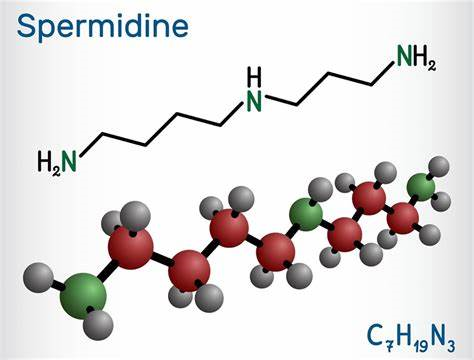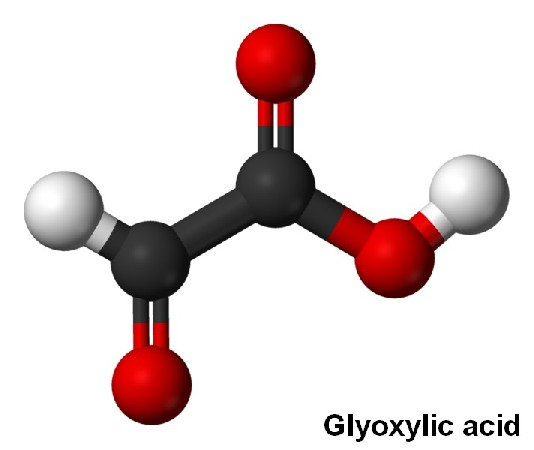Spermidine: Food sources, Benefits and Side Effects
Jun 24,2024
Food sources of Spermidine
Spermidine is a ubiquitous naturally occurring polyamine that can be ingested from the diet, is endogenously biosynthesised in most cells, and is produced by the gut microbiota. Spermidine is found in foods such as wheat germ, mushrooms, corn, Cheddar cheese, legumes (e.g., soybeans, green peas, lentils, and red beans), nuts, meats (chicken liver and beef), some fruits (pears and mangoes), and vegetables (broccoli and cauliflower).

Benefits
Spermidine has a variety of pharmacological effects including anti-inflammatory, antioxidant, anti-aging, anticancer, enhancement of mitochondrial metabolic function and respiration, as well as improvement of proteostasis and chaperone activity.
It plays a crucial role in mammalian metabolism. Its content decreases with age. Therefore, increased intake of spermidine has protective effects against cancer, metabolic diseases, heart disease and neurodegenerative diseases.
Anti-ageing
It has been shown that many of the anti-aging effects of spermidine are related to the ability of this polyamine to induce cytoprotective autophagy. Autophagy ensures overall cellular homeostasis and proteostasis and is directly involved in the degradation of damaged, potentially toxic organelles and harmful protein aggregates, thereby removing and recycling cytoplasmic material that accumulates during the aging process.
Anticancer
Studies have shown that taking spermidine in immunotherapy has anti-tumour properties. Supplementation with spermidine was able to restore MTP-mediated mitochondrial respiratory capacity in naïve CD8+ T cells to juvenile levels, thereby improving T cell activation in aged mice. Increased intake of spermidine appears to inhibit tumourigenesis, but it also promotes the growth of established cancers.
Prolong life
The health and longevity promoting effects of spermidine supplementation. Studies have shown that spermidine supplementation extends lifespan in invertebrates and mice. In addition, a polyamine-rich diet reduced mortality in aged mice.
Treatment of cardiovascular and muscle-related diseases
Dietary spermidine prevents cardiac aging. It improves diastolic function, left ventricular elasticity and mitochondrial function in aged mice. Among rats fed a high-salt diet (hypertensive heart failure model), oral supplementation with spermidine reduced hypertension and delayed the transition to heart failure. In addition, short-term administration of spermidine to aged mice reversed age-related defects in autophagy and mitochondrial autophagy in muscle stem cells (satellite cells), prevented aging and improved muscle regeneration.
Neuroprotection
Autophagy (especially mitochondrial autophagy) plays an important role in maintaining normal brain function and preventing neurodegeneration. Spermidine supplementation induces autophagy and exerts additional, potentially autophagy-independent metabolic and transcriptional effects in the body. Thus, spermidine supplementation may exert neuroprotective effects in the body.
Side Effects
Side effects related to spermidine have not been reported and the safety profile is favourable. In a randomised, placebo-controlled, triple-blind, two-armed crossover trial, it was shown that high-dose supplementation with spermidine did not increase plasma and salivary levels of spermine in healthy adults. Dietary spermidine is converted into spermine before it enters the systemic circulation. Spermidine supplements at doses less than 15 mg/day are unlikely to produce any short-term effects.
References:
[1] P. STEICHEN. Spermidine content of selected dietary supplements: potential for improvement?[J]. Functional Foods in Health and Disease, 2023. DOI:10.31989/ffhd.v13i5.1102.
[2] ANDREAS ZIMMERMANN; Frank M; Sebastian J Hofer. Molecular targets of spermidine: implications for cancer suppression.[J]. Cell Stress, 2023. DOI:10.15698/cst2023.07.281.
[3] STEFAN SENEKOWITSCH. High-Dose Spermidine Supplementation Does Not Increase Spermidine Levels in Blood Plasma and Saliva of Healthy Adults: A Randomized Placebo-Controlled Pharmacokinetic and Metabolomic Study.[J]. Nutrients, 2023. DOI:10.3390/nu15081852.
- Related articles
- Related Qustion
- What is chlorella spermidine? Apr 19, 2024
Chlorella and spermidine are interrelated in their potential to promote anti-aging effects.
- Can Spermidine supplements delay aging in humans? Apr 16, 2024
Maybe. Numerous studies have shown that Spermidine is a true age-protectant, naturally occurring in food, and critical to cellular and organismal function through highly conserved pathways.
- Application and Synthesis of spermidine Oct 12, 2022
Spermidine (Spd) is a kind of low molecular weight nitrogenous base commonly existing in organisms.
Supplementation with pyridoxal 5'-phosphate monohydrate can synthesize neurotransmitters such as dopamine and serotonin, maintaining a healthy nervous system.....
Nov 4,2025Biochemical EngineeringGlyoxylic acid (GA) is a straightening agent for hair care products. However, due to the continued use of Glyoxylic acid products can produce odour and discolouration.....
Jun 24,2024APISpermidine
124-20-9You may like
- Diosgenin:Uses,Functions and Synthesis
Dec 12, 2025
- Biosynthesis of Cyclopamine from Cholesterol
Dec 10, 2025
- Synthesis of ribociclib
Dec 10, 2025
- spermidine
-

- $1.00 / 500g
- 2025-12-16
- CAS:124-20-9
- Min. Order: 300g
- Purity: 99.8%
- Supply Ability: 20 TONS
- Spermidine
-

- $100.00 / 50kg
- 2025-12-16
- CAS:124-20-9
- Min. Order: 1kg
- Purity: 99%
- Supply Ability: 5000Ton
- Spermidine
-

- $0.00 / 1kg
- 2025-12-16
- CAS:124-20-9
- Min. Order: 1kg
- Purity: 0.99
- Supply Ability: 1000kg






